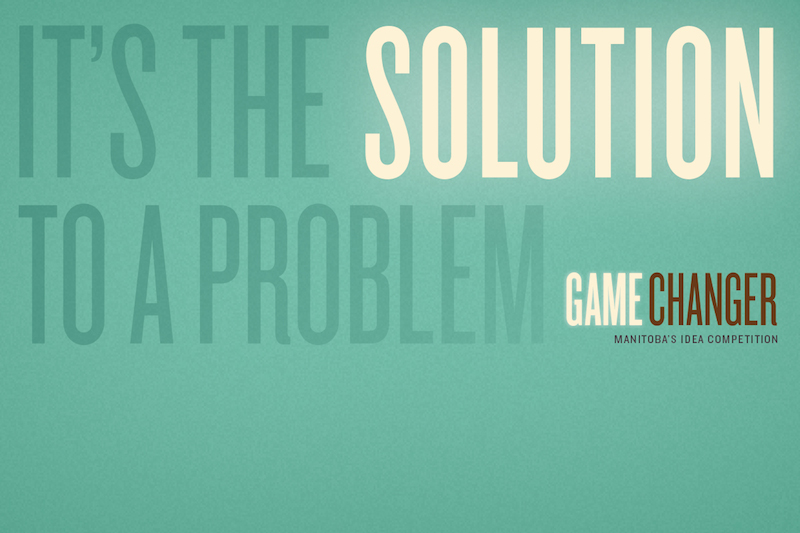
Here are five problems, yo, you solve them
Phase two of the Game Changer competition is underway with $10,000 in prizes to be won
Yo, umanitoba, let’s kick it.
All right stop, collaborate and listen
Game Changer’s here with five new questions
Reducing greenhouse gasses, moving goods tightly
Bringing new ideas to education, seems mighty
Can food waste be cut? Yo, I don’t know
Detecting Alzheimer’s early, let’s go
Sitting too much, gaining weight: love handles
Put a team together, brainstorm from new angles
Think, of ideas that go boom
Fill up your brain like an expanding balloon
Readily, got to be sharp mentally
Work with one another credibly
Love it or leave it, you better find a way
Your game-changing solutions gotta be tight on game day
Here are five problems, yo, you solve them
Submit your solutions after your team evolves them
With all due respect to Vanilla Ice, Game Changer is a bold and new competition developed by the University of Manitoba that began in September.
In the first phase, five winning “problems” were identified from a total of 77 student submissions from departments and faculties across the university. Students behind each of the winning problems received a $500 cash prize for submitting their great questions. More money is up for during the second phase of the competition.
Students are now encouraged to put cross-faculty teams together to in attempt to present viable solutions to the five winning problems, listed below. The top 10 solutions will move to a final round where faculty, industry, and community professionals will mentor and sponsor teams to develop the idea into a viable product or business. The grand-prize winning team will receive $10,000 and six months of professional mentorship to transform their game-changing idea into a reality.
The deadline for team and solutions is January 25.
THE PROBLEMS
Health
Technology promotes sedentary lifestyles, which leads to obesity. How can we change this?
Problem proposed by Adam Nepon, Faculty of Graduate Studies.
Food
How can food waste be reduced in order to make quality food available for all?
Problem proposed independently by Amy Dytnerski, Faculty of Health Sciences, and Gary Tong, Faculty of Science.
Medical
How can we detect early-onset Alzheimer’s disease before there is irreversible damage?
Problem proposed by Jesslyn Janssen, Faculty of Science.
Climate
How can we reduce CO2 emissions in the transportation of goods?
Problem proposed by Riley Bell, Extended Education.
Education
How can we encourage new ideas within our system when we test primarily for compliance?
Problem proposed by Ken Oliver, Faculty of Science.
For fun, and perhaps for those who are too young to remember, here’s the original video for Ice Ice Baby.
Research at the University of Manitoba is partially supported by funding from the Government of Canada Research Support Fund.







where is the “like” button for this post?